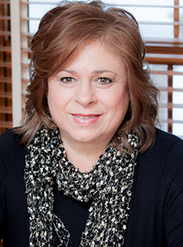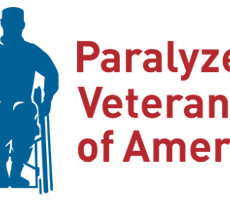
Something is… “just different” about my child!
By Jeanne Beard (mother of two sons with special needs & founder of National Autism Academy)
Something is… “just different” about my child!
Many parents, especially moms, can feel it in their gut long before they get a diagnosis of Autism Spectrum Disorder for their child. A recent conversation I had with the best diagnostician I know confirmed how common my experience was to what many other mom’s experience; we intuitively know that something is going on with our child, but we can’t quite put our finger on it.
Before we understand how autism affects our child, we don’t have a definition for what seems different. When I first came into contact with autism it was so confusing. One day my son seemed like everybody else, and the next day he would meltdown over tying his shoes!
People around me criticized my parenting and said his problems were my fault. They claimed if I was just a stricter parent, delivered more tough love, and punished him more, that he would do better. People who say things like that have no idea what they are saying, or how painful it is to be told you are failing as a parent.
When you are a good parent, and your parenting is not working, what do you do? Try harder to apply the parenting strategies you know. With a child on the autism spectrum, traditional parenting strategies won’t work, no matter how diligent you are, or how much tough love you use to back them up.
I promise you, you cannot apply enough tough love to parent the autism out of a child!
I remember wondering if I was just being manipulated by a really smart kid. This is an all-too-common experience for parents who are in the diagnostic process. Take heart, once you understand the intricacies of how autism influences thinking, behavior, and functional skills, everything begins to make sense, and we can recognize what behavior is driven by autism and what is not!
Here’s what I share with people I coach through the diagnostic process. Diagnosis is a process, and not always an easy process, especially if your child is high functioning (i.e. is not severely impacted by the autism). There are 2 common ways that children get diagnosed.
One is an educational diagnosis through the school, and the other is a medical diagnosis through a Psychiatrist, Neurologist, Psychologist, Social Worker or other mental health professional in private practice. The diagnosis you receive from either of these sources is the same diagnosis, it’s just being recognized from a different perspective.
Unfortunately, the school may be reticent or even avoid giving the diagnosis because of the impact on their approach to teaching the child, and the potential impact on their budget. Many parents also pursue medical testing such as neurological brain scans, etc.
To me, that seems like a lot of expense and stress for the child that isn’t really necessary. The bottom line is either your child is happy and functional or they are not. And if they are not, then all the brain scans in the world won’t help them to become more happy or functional.
A good diagnostician can identify the autism by interviewing you and assessing the child. If you are having trouble locating a good diagnostician in your area, check the closest University and see if they have an autism clinic.
Here are some questions you can ask yourself to begin to determine if you are seeing signs of autism in your child (the age of your child might make some of these irrelevant):
-
Does my child have sensory hypersensitivity (even if it is subtle)?
-
Is my child an incredibly picky eater?
-
Has my child had difficulties in some area of life from the beginning?
-
Is/was potty training a struggle to complete?
-
Does my child have friendships and get invited to birthday parties?
-
Does my child prefer to play alone rather than with others?
-
Does my child experience high anxiety or seem distracted a lot?
-
Does my child display stimming behaviors (repetitive movements, tics, etc.)?
-
Does my child follow directions easily?
-
Does my child have issues with speech?
If you answer yes to even one of these questions, and you have that gut feeling that something is different, then I would follow up until you find an answer that satisfies you that you are doing what you need to do for your child to become happy and functional!
Start by finding an expert in autism to help you! Make sure you know for certain that you are consulting a qualified, experienced expert. Unfortunately, with the recent explosion of the occurrences of autism, many professionals are not yet up to speed on diagnosing autism, and prefer to diagnose other conditions like ADHD/ADD, OCD, Oppositional Defiance Disorder, Bi-Polar Disorder, and Sensory processing disorder among others.
All of these are very common precursor diagnoses for autism. So, if you do not get the diagnosis from a professional you have consulted, and you believe that your child is on the spectrum, consult another expert.
Listen to your gut.
In my work at the National Autism Academy, I speak with 20 or more mothers per week, and fighting to get diagnosed is still a very common experience.
Finally, try not be afraid of the diagnosis. With the proper parent training and education, autism is a very workable diagnosis, and children on the spectrum can lead very full and satisfying lives. Recognize that the number one contributor to a child’s success is the parent and how much they understand about the autism.
Educate yourself so that you can understand and work with your child at home, how to develop their strengths and mitigate their challenges. The earlier you begin to work with your child to help him or her understand how their neurology works and how to manage their behavior, the less negative impact the autism will have in their life!
ABOUT JEANNE BEARD:
Jeanne Beard, founder of the National Autism Academy and author of “Autism & The Rest Of Us”, has decades of experience in the trenches with Asperger’s Syndrome and Autism Spectrum Disorders, and the people diagnosed with them. In addition to her essential life experience creating functional, nurturing, and balanced relationships with those on the spectrum, Jeanne was mentored by clinical expert Timothy Wahlberg, PhD during the writing of his clinical guide “Finding the Gray: Understanding and Thriving in the Black and White World of Autism and Asperger’s.” Through her incredible insight into the thoughts, experiences, and challenges of those on the spectrum AND of the rest of us, Jeanne builds a bridge to hope and a better future for us all.
For More Information Visit: https://nationalautismacademy.com
Facebook: https://www.facebook.com/NationalAutismAcademy
Instagram: https://www.instagram.com/nationalautismacademy
Pinterest: https://www.pinterest.com/nationalautismacademy
LinkedIn: https://www.linkedin.com/in/jeanne-beard-44b367





Recent Comments